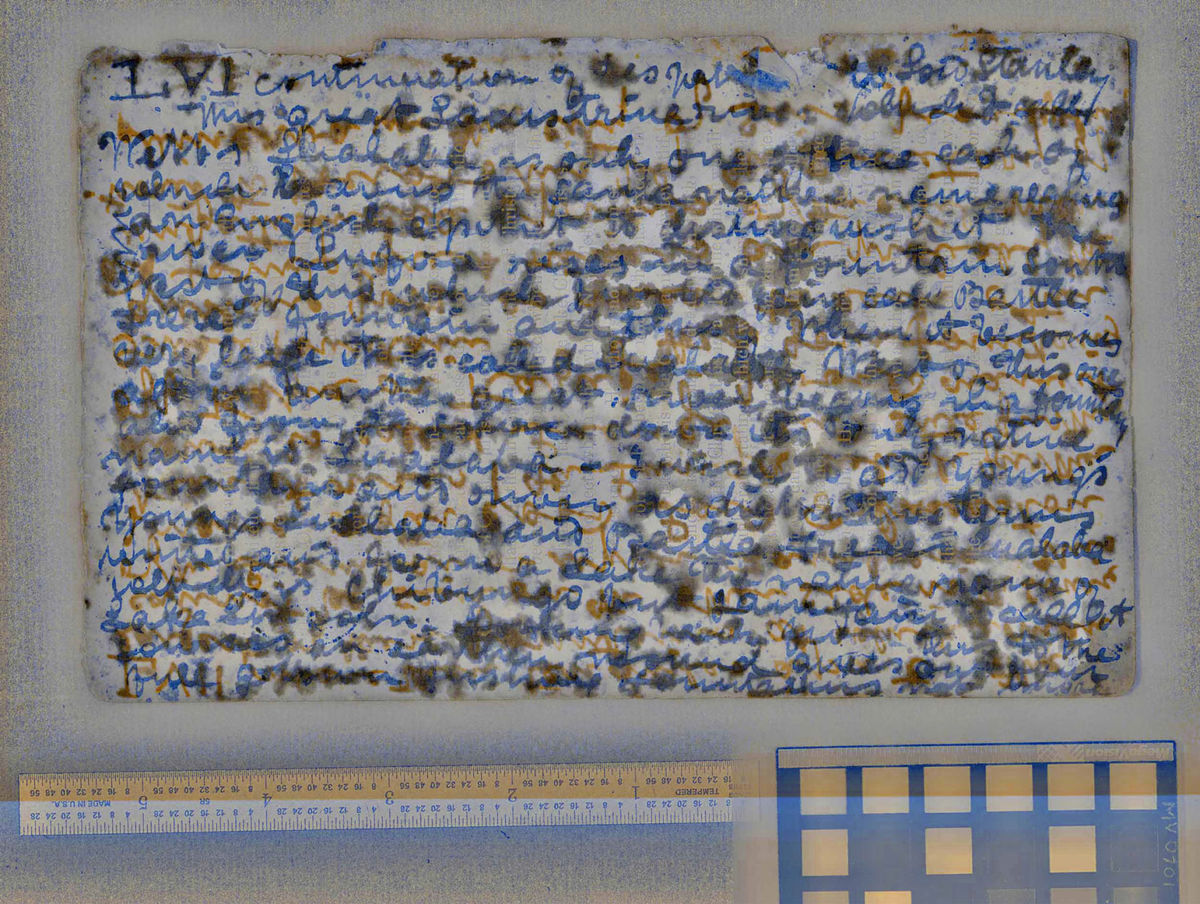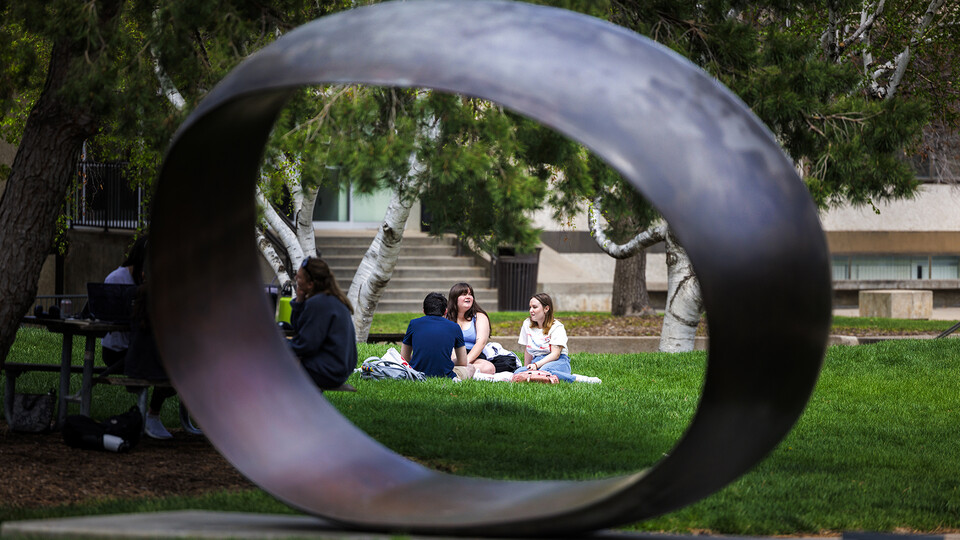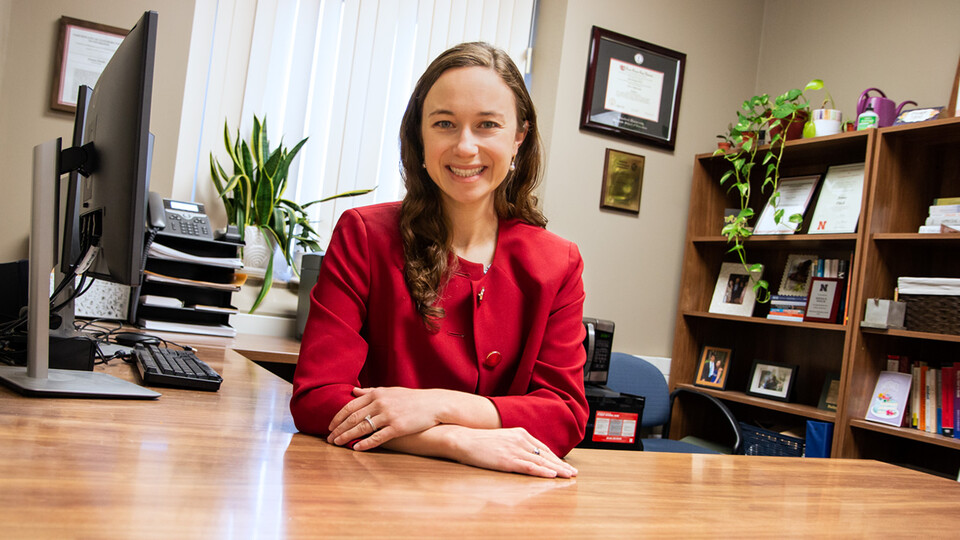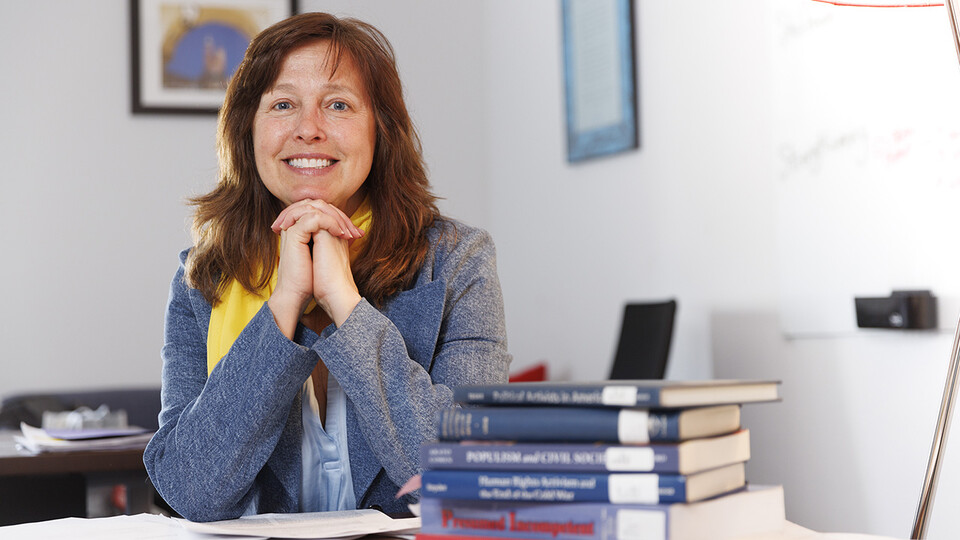
University of Nebraska-Lincoln assistant English professor Adrian Wisnicki’s multispectral imaging project won a first runner up Digital Humanities award last week for best data visualization. The project focuses on recovering manuscripts written by legendary Scottish missionary and explorer David Livingstone, who traveled to colonial Africa three times throughout his life in the late 19th century.
Livingstone recorded almost everything he witnessed during his travels, keeping diaries and writing several books in the process. During his time in Africa, Livingstone witnessed the treatment of Africans by Arab and Portuguese slave traders, driving him to write down the horrors and publicize the issue to British citizens.
Wisnicki’s imaging project concerns Livingstone’s 1870 field diary. During his final journey in Africa, Livingstone ran out of writing supplies. Rather than giving up Livingstone created his own ink and wrote over the pages of newspapers he had.
Easton and the other imaging scientists used a process called multispectral imaging for the project. The team began by taking photographs of the original document. The images were then subjected to colored LED lights, seeking color combinations that would make the writings readable.
“It was actually pretty easy to find a combination of bands that showed everything but the handwritten ink and then find a combination that showed only the handwritten ink,” Easton said.
The 1870 field diary is part of a large online archive, which Wisnicki is the director of, titled “Livingstone Online.”
Multispectral imaging has been used for several other Livingstone manuscripts, allowing Wisnicki and other researchers to gain a European perspective of 19th century colonial Africa. Livingstone’s writings gave way to understanding the larger role non-Western populations played in Africa.
“What’s important to take away there is that Livingstone did not work alone,” Wisnicki said. “He worked in specific historical context, and he interacted and depended on people who often weren’t British. They were often African or Arab or Indian, and those people are often written out of historical record.”
Livingstone’s works provides insight on the modern world. Many of his scientific observations and geographical discoveries give insight to how certain parts of the world have changed over time.
Megan Ward, a professor of digital humanities at Oregon State University, is the co-director of “Livingstone Online” alongside Wisnicki. She is in charge of the website’s outreach program which seeks to educate schoolchildren about the Africa Livingstone perceived.
“This is not unmediated African history, it gives a lot of understanding of how the British conceived of themselves in relation to Africa,” Ward said.
Modern African politics has been shaped by 19th century European colonialism, sowing the seeds for many complex issues including human trafficking and terrorism. Ward said she believes Livingstone’s manuscripts can help students understand the global issues affecting the world today.
“Seeing how our global situation now arises from some of the values that we find in Livingstone’s writings I think could be really useful for school children,” Ward said. “Even quite young ones can make connections between our present world and the world Livingstone saw.”
The 1870 field diary multispectral imaging project was nominated for the 2016 Digital Humanities Awards. The votes were casted online by members of the general public. The following week, the votes were tallied up and the project won first runner-up.
“I was very happy, it was very competitive,” Wisnicki said. “We were kind of happy to be in the running in the first place. Being first runner up is very good company.”


